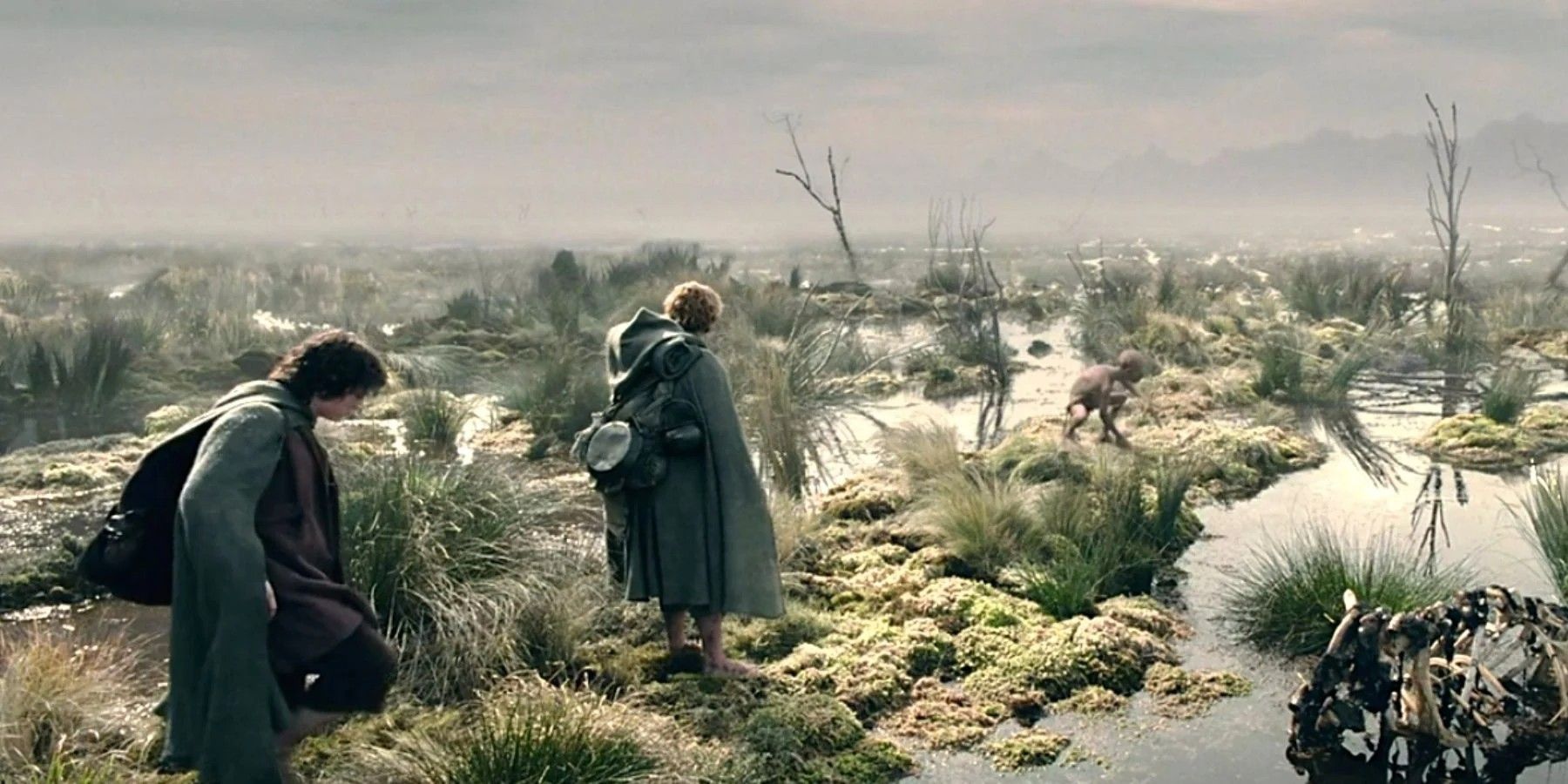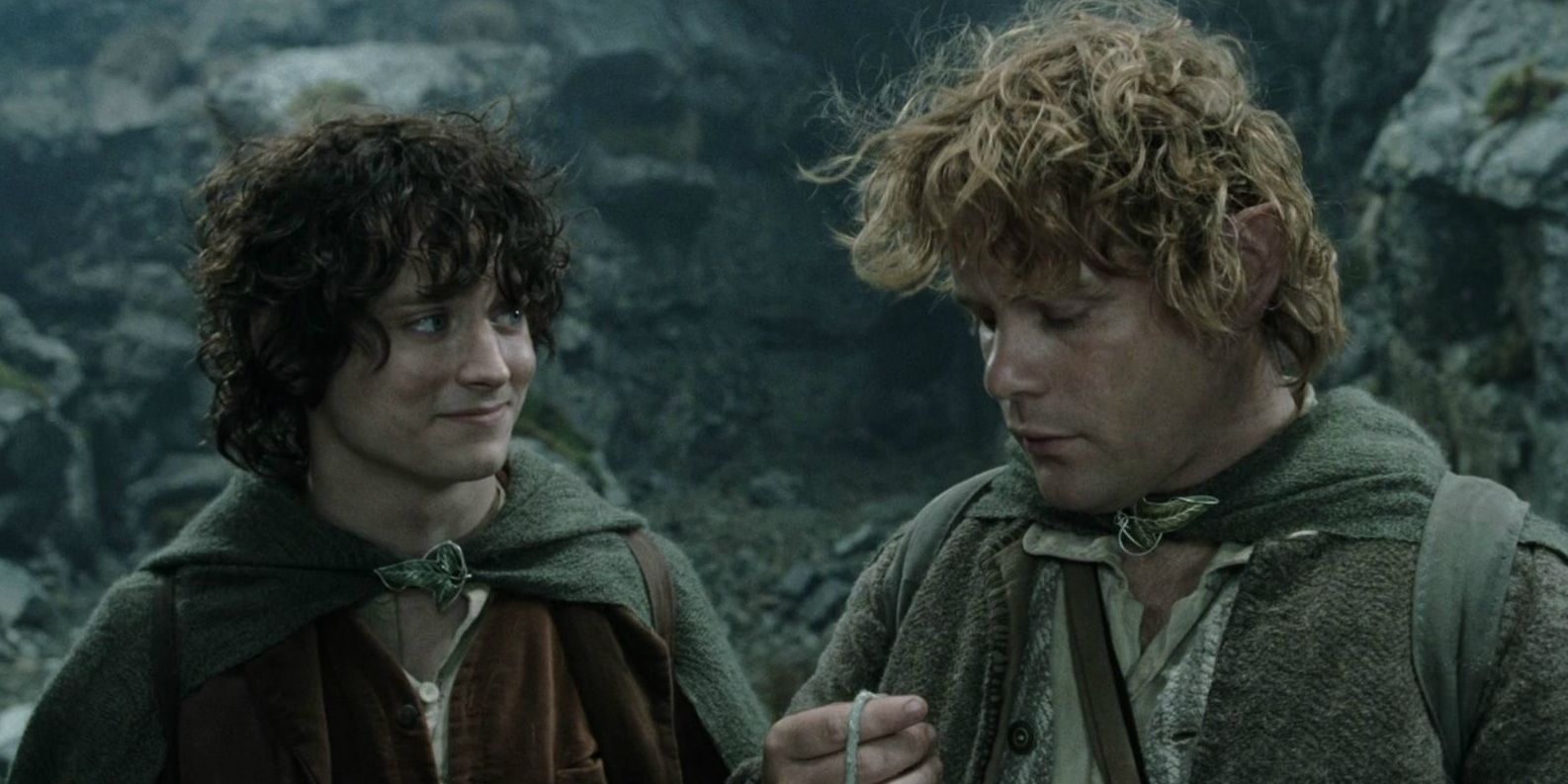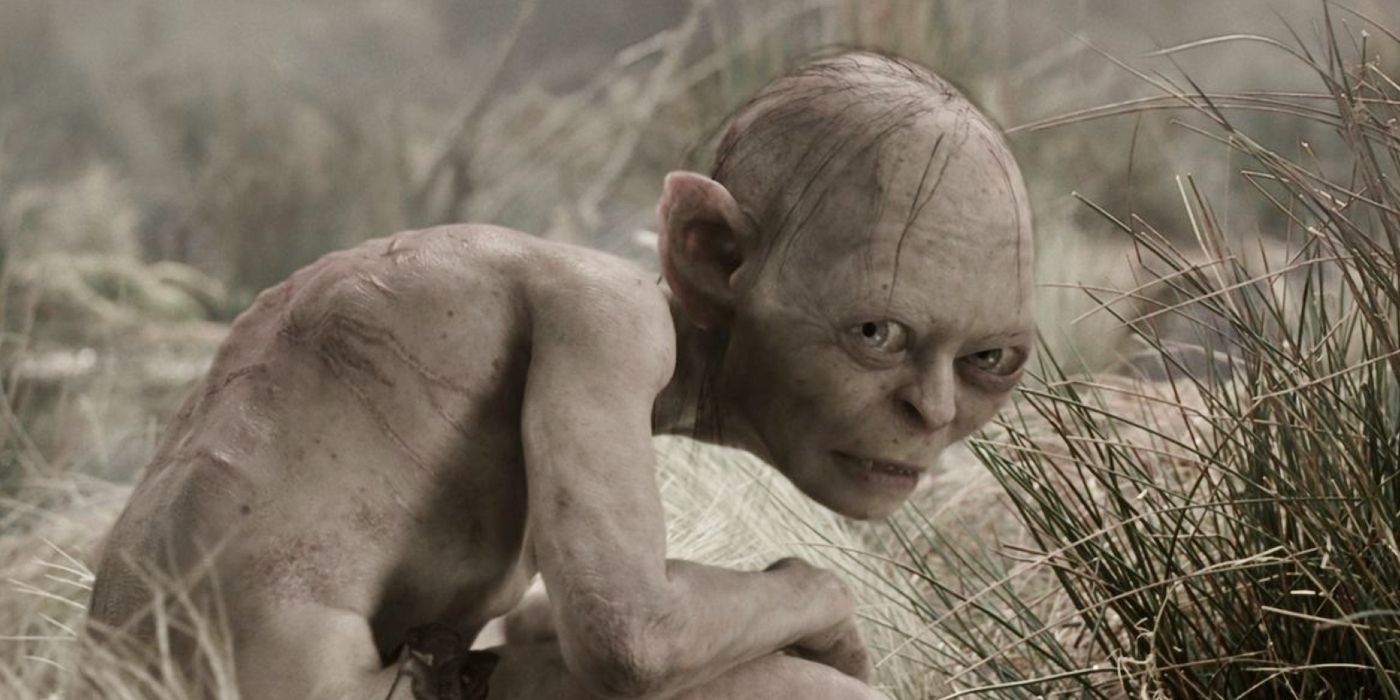
The scene in the film lasts only a short time, and its book counterpart is even shorter. However, this moment is highly significant in The Lord of the Rings universe. When Frodo and Sam notice the dead faces in the waters, Gollum tells them about a battle between Elves, Men, and Orcs. This scene is even more significant in the film because it is where Gollum remembers his name. However, in the book, Gollum refers to his past self, Sméagol, when telling Frodo and Sam about the Dead Marshes. However, none of this adequately explains why there are so many “dead faces in the water“.
The Dead Marshes Was The Site Of The Battle Of Dagorlad, Over 3000 Years Before LOTR
A Turning Point At The End Of The Second Age

This battle is a turning point because the elves and men enter Mordor, closing in on Sauron. Although it would be a few more years before the defeat of Sauron, the Battle of Dagorlad is critical in achieving victory.
The Dead Marshes swamp earns its name because of the Battle of Dagorlad, which takes place over 3000 years before The Lord of the Rings but almost 2000 years after The Rings of Power. This battle occurs at the end of the Second Age during the War of the Last Alliance, where Elves and Men fight against Sauron. This battle is a turning point because the elves and men enter Mordor, closing in on Sauron. Although it would be a few more years before the defeat of Sauron, the Battle of Dagorlad is critical in achieving victory.
Why The Bodies Floating In The Dead Marshes Are Still There During Lord Of The Rings
How The Water Preserves The Bodies

Frodo and Sam learn that the dead bodies of Elves, Men, and Orcs have remained in the Dead Marshes. The swamp has grown around the faces because the bodies do not move, held in place by a mysterious and sinister power. Gollum does not know what has preserved them all these years, but he insists they should not go near the faces or their lights. In the book, Sam suspects it is connected to the Dark Land, meaning Morgoth – Sauron’s former master – might have something to do with it. However, the bodies are unreachable; no one can touch them, no matter how hard they might try.
War Of The Last Alliance
Year (Second Age)
Sauron takes Minas Ithil
3429
The Last Alliance of Elves and Men is established
3430
Battle of Dagorlad
3434
Siege of Barad-dûr
3434-3441
The war ends (Sauron is temporarily defeated)
3441
The Battle of Dagorlad is mentioned in The Lord of the Rings narrative, but it does not lessen the impact. The Last Alliance of Elves and Men needed to break through to Mordor, and they could not do that without crossing the piece of land beforehand. Many lives were lost, which is evident when Frodo and Sam see all the dead bodies around them in the Dead Marshes. However, Sauron’s defeat does not destroy the One Ring, leading Sauron to rise again. This premise sets up The Lord of the Rings trilogy, which in turn leads to the events described in The Two Towers.





